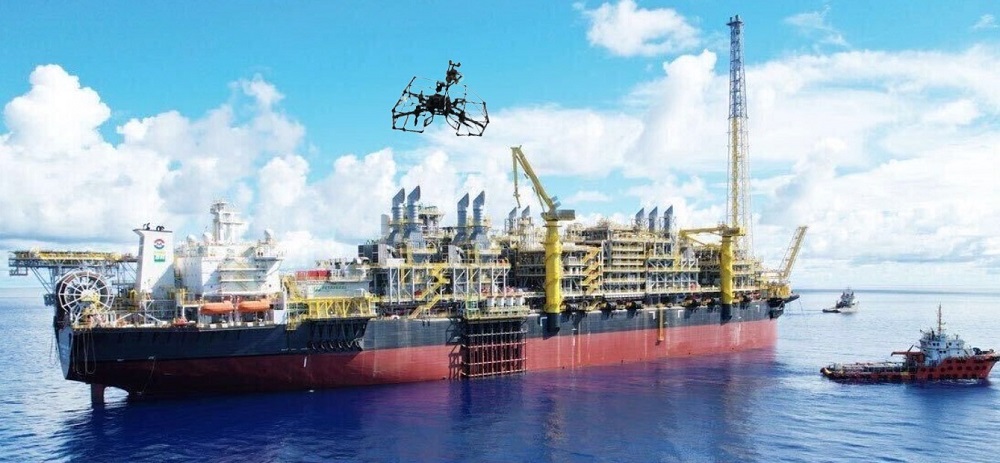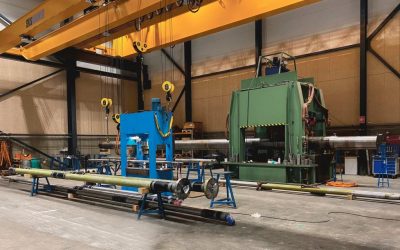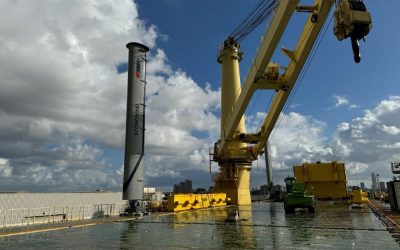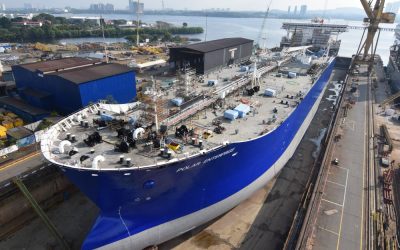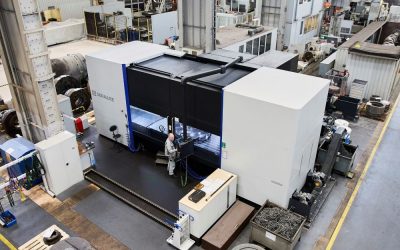Japanese firm collaborates with technology leaders to enhance FPSO and FSO offerings
Modec, working together with Toray Industries, has developed a carbon fibre-reinforced plastic (CFRP) patch technique for repairs to floating production storage and offloading (FPSO) and floating storage and offloading (FSO) systems. FPSO and FSO repair services provided by Modec will utilise this CFRP patch technique for pitting corrosion repairs starting later this year.
In an important step forward, the American Bureau of Shipping (ABS) has now approved the technique for repairing areas with diameters of up to 300mm that have suffered damage from pitting corrosion.
FPSO and FSO maintenance must take place without interruption to oil and gas production. “Accordingly, developing a repair technique that facilitates the efficient deployment of materials and equipment offshore and does not involve hot work is vital,” the company states. These considerations prompted Modec and Toray to jointly develop a vacuum-assisted resin transfer moulding (VaRTM) process for CFRP repairs in 2020, with ABS approving the application of CFRP to steel to restore its mechanical strength.
While Modec says this was “excellent” for repairing large corrosion areas, this process was found to be “less suitable” for pitting corrosion repairs. The new CFRP patch technique is, Modec suggests, “a more straightforward and more effective solution in such cases”.
“It only requires bonding prefabricated CFRP patch flat plates over pitting corrosion, thereby reducing the amount of work required and improving lead times,” the company says.
The technique further eliminates the need for vacuum pumps and other equipment and streamlines the process of transporting reinforcement materials and construction tools on board. Moreover, it ensures minimal disruption in oil and gas production because it avoids the need for hot work.
Together with Toray, Modec says it will cater to the diverse corrosion repair needs of FPSO and FSO operators by offering the in-situ VaRTM technique for extensive repairs and the CFRP patch technique for localised repairs. The two companies say they will continue to develop repair technologies for these vessels to “promptly address market needs while tackling environmental and other social issues to contribute to a sustainable economy”.
In another significant initiative, Modec and Tera Drone have completed the drone-based hull thickness measurement of a crude oil storage tank of the FPSO Cidade de Mangaratiba, operated by Modec offshore Brazil. This measurement method has recently been approved by ABS for use in the FPSO sector, for the first time.
The inspection of traditional crude oil storage tanks poses significant occupational safety and health concerns, as it involves confined space entry and working at up to 30m heights. Moreover, these inspections typically require inspectors to manually record approximate measurement points on paper. Therefore, it is difficult to measure the exact same points within each regular inspection, making it challenging to maintain traceability of the measurement points.
Using Terra Drone’s Terra UT Drone, which comes equipped with ultrasonic testing capabilities for non-destructive testing, inspectors can now operate the drone from a safe area inside the tank. This eliminates the need to work at height and ensures a safer inspection process. Furthermore, the drone enhances the inspection process by capturing video images and acquiring 3D point cloud data, significantly improving the traceability of measurement points.
Modec and Terra Drone have already completed a second inspection on FPSO Cidade de Angra dos Reis, located approximately 300km off the coast of Rio de Janeiro. The two partners say they will continue to apply this method to regular inspections on FPSOs to build a track record and further develop the technology.
